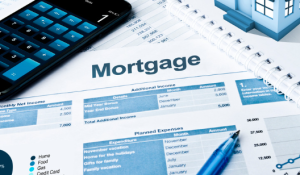Table of Contents
Purchasing a home is an exciting milestone in anyone’s life, but the process may seem daunting for expatriates. However, obtaining a mortgage as an expat can be a straightforward and achievable goal with the right knowledge and guidance. In this comprehensive guide, we will delve into ex-pat mortgages, providing valuable insights, tips, and resources to navigate this unique financial landscape.
Understanding Expat Mortgages
 Expat mortgages, also known as international mortgages or foreigner mortgages, are home loans specifically tailored to individuals living and working abroad. These mortgages enable expatriates to purchase property in their host country or invest in real estate back home.
Expat mortgages, also known as international mortgages or foreigner mortgages, are home loans specifically tailored to individuals living and working abroad. These mortgages enable expatriates to purchase property in their host country or invest in real estate back home.
The Importance of Expat Mortgages
For expatriates, securing a mortgage can be crucial for various reasons. It offers the opportunity to build equity, establish a long-term investment, and create a sense of stability and belonging. Additionally, owning property can provide financial independence and security, especially during retirement or when returning to one’s home country.
Differences between Expat Mortgages and Traditional Mortgages
Expat mortgages differ from traditional mortgages in several ways. Lenders often consider factors such as income sources, employment stability, and credit history in the host country rather than relying solely on credit scores from the expat’s home country. Interest rates and eligibility criteria may also vary, depending on the lender and the expat’s specific circumstances.
Challenges and Solutions for Expatriate Home Buyers
Lack of Credit History in the Host Country
One common challenge expat home buyers face is the absence of a credit history in their host country. Lenders typically rely on credit scores to assess an individual’s creditworthiness, but expatriates may find it difficult to provide this information. In such cases, alternative documentation, such as proof of regular income, employment stability, and rental payment history, can help strengthen their mortgage application.
Currency Fluctuations and Exchange Rate Risks
Expats often encounter currency fluctuations and exchange rate risks, which can impact mortgage repayments. To mitigate these risks, some lenders offer currency-specific mortgages or hedging options that allow borrowers to match their mortgage payments with their income in the same currency. This helps minimize the impact of exchange rate fluctuations and provides financial stability.
Legal and Regulatory Considerations
Each country has its own legal and regulatory framework regarding expat mortgages. It’s crucial for expatriate home buyers to understand these regulations and seek professional advice from local experts, such as mortgage brokers and real estate attorneys. They can provide valuable insights into the local property market, loan options, and legal obligations.
Building Relationships with Expat-Friendly Lenders
Establishing relationships with lenders experienced in providing expat mortgages is essential. These lenders deeply understand expatriates’ unique challenges and can offer tailored solutions. Researching and connecting with reputable lenders specializing in expat mortgages can significantly streamline the application process.
Steps to Obtain an Expat Mortgage
 Assess Your Financial Position
Assess Your Financial Position
Assessing your financial position is crucial before embarking on the mortgage application process. Calculate your budget, considering factors such as your current income, expenses, and any existing debts or financial obligations. This evaluation will help you determine a realistic mortgage amount and repayment strategy.
Research Lenders and Loan Options
Conduct thorough research to identify lenders specializing in expat mortgages. Compare their offerings, interest rates, loan terms, and eligibility criteria. Look for lenders who offer flexibility, competitive rates, and excellent customer service.
Gather Documentation
Compile the necessary documentation required for the mortgage application process. This typically includes identification documents, proof of income, employment history, bank statements, and any additional documents specific to the lender’s requirements. Organizing these documents in advance will expedite the application process.
Engage a Mortgage Broker
 Consider engaging a professional mortgage broker who specializes in expat mortgages. A broker can provide expert guidance, navigate complex mortgage options, negotiate with lenders on your behalf, and streamline the application process. They have access to a wide range of lenders and can help you find the best mortgage deal.
Consider engaging a professional mortgage broker who specializes in expat mortgages. A broker can provide expert guidance, navigate complex mortgage options, negotiate with lenders on your behalf, and streamline the application process. They have access to a wide range of lenders and can help you find the best mortgage deal.
Submit Your Mortgage Application
Once you have gathered all the necessary documents and chosen a lender, submit your mortgage application. Be prepared to promptly provide any additional information or clarifications requested by the lender. Maintain open communication with your mortgage broker or lender throughout the process to ensure a smooth transaction.
Conclusion
Obtaining an expat mortgage may initially seem challenging, but it can become an achievable reality with the right knowledge and resources. By understanding the intricacies of expat mortgages, addressing potential challenges, and following the necessary steps, you can navigate the path to homeownership as an expatriate. Remember, seeking professional advice and establishing relationships with reputable lenders are crucial elements in securing the best mortgage solution for your unique circumstances. Good luck on your journey to becoming a homeowner abroad!


